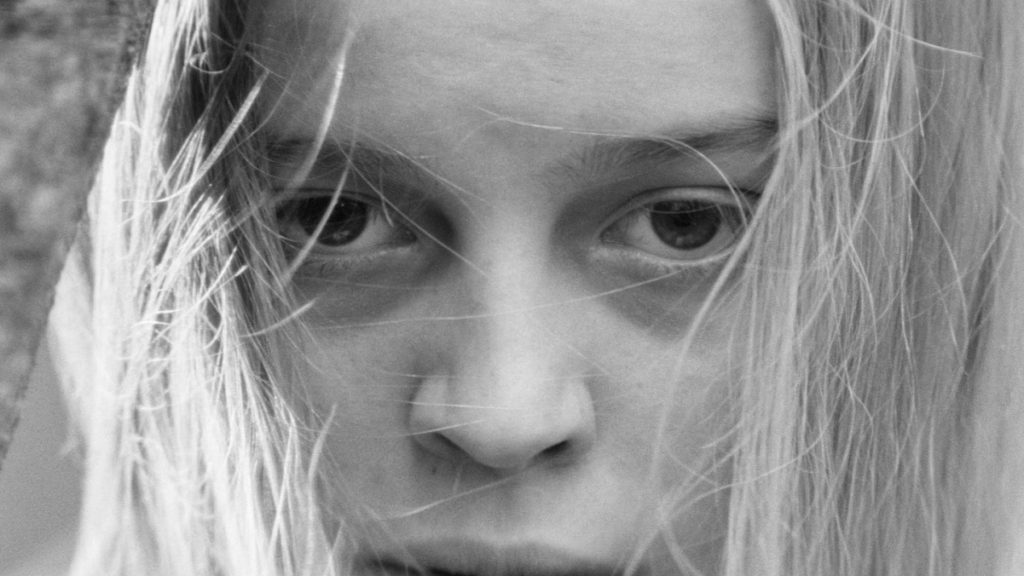I personally could not have put our 1967 in Film series to bed many months ago without re-watching and constantly praising what amounts to the greatest film of the year. In my opinion. A winter’s tale, a kind of medieval, 13th century fable – and an epic one. Czech film, Marketa Lazarová, exquisitely creeps up on you over and over again during its two and three quarter hours running time. And my oh my what a journey.
A wicked, gorgeous, cryptic motion picture experience, Marketa Lazarová is directed by František Vláčil, and adapted from the 1931 novel of the same name, by Vladislav Vančura. A film experience for the (middle) ages. And widely considered the finest feature film of all-time to come out of, what is now, the Czech Republic.
This is what happens when Christianity struggles to forego Paganism. When social conflict between the neighbouring clans threatens to uproot the system of authority. When the notions and reality of purity and violence merge into one another. Marketa Lazarová is a magnificently fragmented journey. One which harbors a vivid sense of anarchy and repression among individuals, not just the collective.
“Every single frame delivers a message, an emotion, knocks you back, or draws you in.”
There are corrupt lords, the rivalry between Kozlík and Lazar, leaders and their sons embroiled in an historic confrontation. And when morals take place over duty, like failing to kill an enemy, and instead letting the confined escape. And that’s largely where Marketa Lazarová dwells, in its vast, beautiful settings, the themes of isolation and captivity are prominent.
As the elders stand strong to uphold values and spout resentful words of fury, the younger generation drive home the more humane aspects. With Kristian and Alexandra, young lovers from the wrong side of the tracks. And Lazar’s young daughter, Markéta, and her ensuing romance. If you can call it that.
Her father has Mikoláš beaten, spiraling from a deep-set lust for justice and vengeance. Markéta is conflicted, disturbed by the brutality, especially so when Lazar himself is given a taste of his own medicine. Mikoláš forces himself on Markéta in hot-blooded retaliation. And the continuing paradox is fueled when it is his father that intervenes. Only for Mikoláš to provoke his wrathful father away from inflicting pain on Markéta. Yikes.
I mean, this film is really something. Characters are torn between loyalties and longings. Mikoláš and Markéta soon fall in love, even though you could argue their liaison began with attempted rape. Kristián, later, has to literally stop in his tracks – flee with Alexandra as they are chased by wolves, or stay true to his father.
“Even in your fluctuating numbness here, the disassociation is naturally captivating.”
Marketa Lazarová is a haunting, atmospheric film without doubt. Often inviting you into the alluring, but aggrieved, space, and then closing in on you with a unflinching hypnosis. Every single frame delivers a message, an emotion, knocks you back, or draws you in.
You feel the enticing gaze of the female form. The film captures fear in men’s glazed eyes. The surreal, unfamiliar elements are fitting to the film’s multi-faceted landscape. The sinister foolery of the wolf-eared hood, or the sympathetic oddity of a monk watching his beloved sheep head roll down a hillside.
Many of the film’s other strengths come in implying rather than detailing. During the viewing, you’ll likely struggle to balance your feelings of sympathy, empathy, judgment – this way or that. There are no clear-cut heroes or villains. Even the fleeting narrator starts: “This tale was cobbled together almost at random and hardly merits praise.” Oh but it does, sir.
Marketa Lazarová submerges you so heavily at times, there is little doubt that multiple viewings will be both required and beneficial. The next one will only be my fourth (not including simply replaying mesmerising moments), so I am nowhere near done. Even in your fluctuating numbness here, the disassociation is naturally captivating. There’s an exquisite depiction of thievery and murder, love and hate, sorrow and bravery.
“From start to finish, too, Marketa Lazarová is accompanied by a ridiculously brilliant, blood-thirsty score.”
Director František Vláčil is all too aware that Marketa Lazarová is not a faithful adaptation of the book. There were huge parts he wanted to film, but with a budget sky-rocketing, and what turned into a 548 day shoot, the filmmaker had to retract. Plus the finished movie would have spilled well over the 3 hour mark.
From start to finish, too, Marketa Lazarová is accompanied by a ridiculously brilliant, blood-thirsty score, composed by Zdeněk Liška. He crafted many of the instruments himself, and based much of the medieval-style music on that of the Christian and Pagan cultures. As well as utilising Gregorian chants, bells tolling, and dramatic chorale music. Making this an operatic wonder of a film, with musical cues attributed to unforgettable scenes.
Given its subject, tones, and crisp black and white photography, Marketa Lazarová assuredly earns its comparisons to Bergman’s The Virgin Spring, or Tarkovsky’s Andrei Rublev. I would add, without missing a breath, 2017’s Estonian stunner, November. A perfect match in fact, precisely fifty years on.
And that cinematography, whatever the mood on display, is lush, an unforgettable sensory experience. There is also a lot to praise to give in the film’s extraordinarily sound design, and precise editing.
The attention to detail shown throughout is all-engulfing, scattering you to a place in history you might have seen or dreamed of, but not lived in with this intensity. Marketa Lazarová is such a distinctive masterpiece, both disorientating and invigorating, that its vastly under-seen status is a mystery. A sin indeed.
Marketa Lazarová is available to stream now on The Criterion Channel

